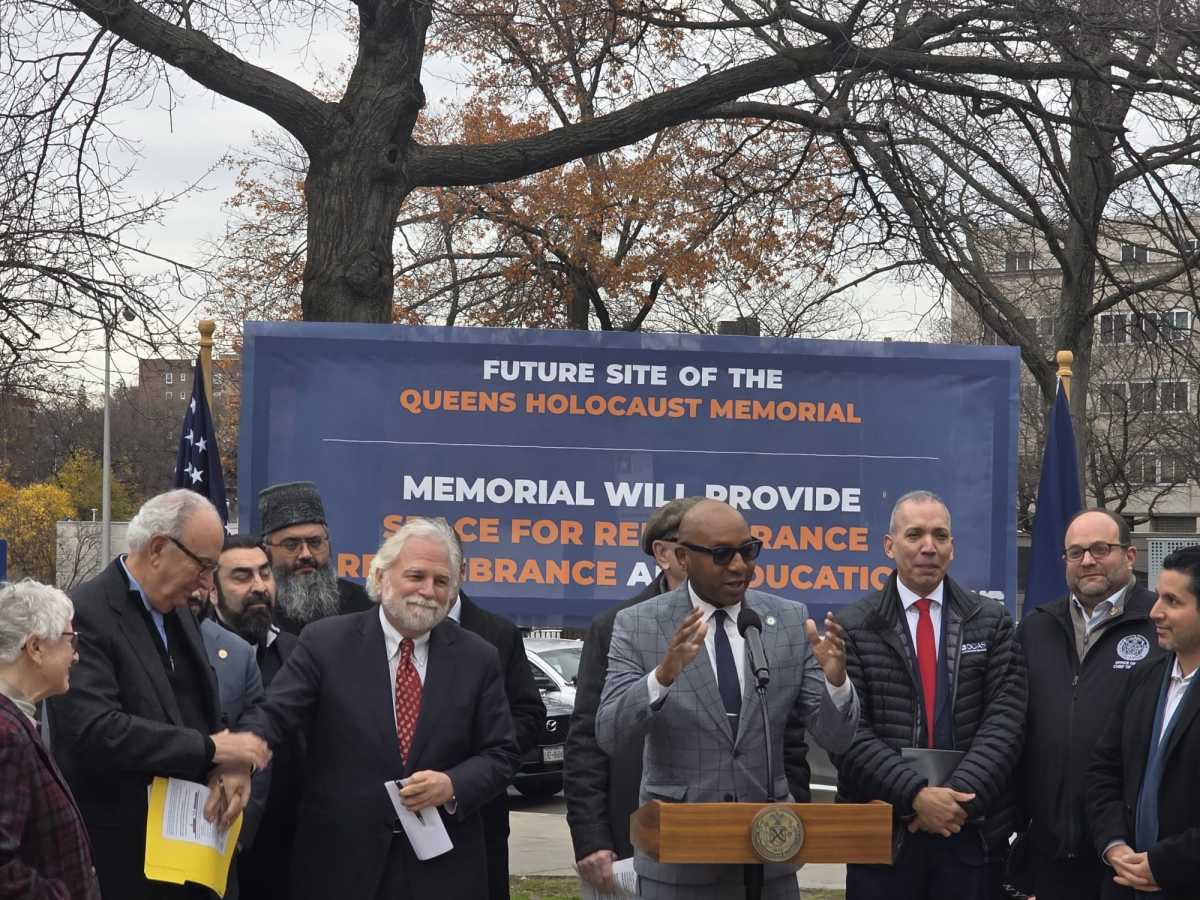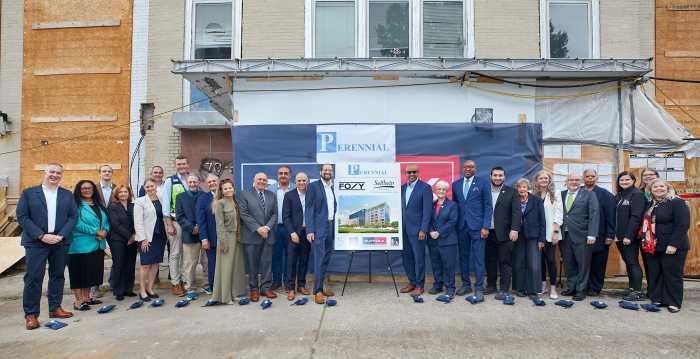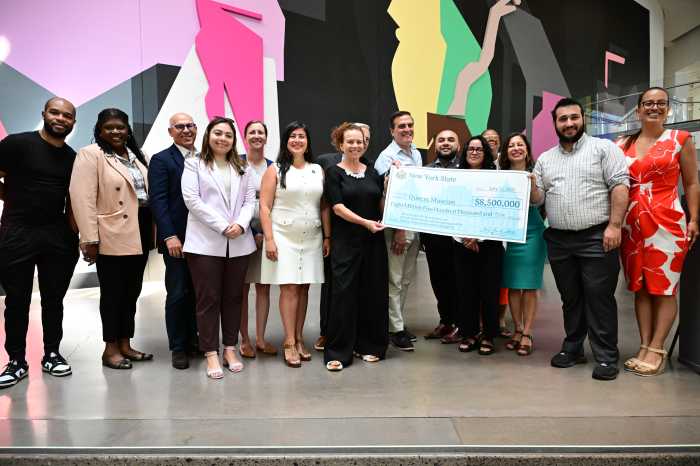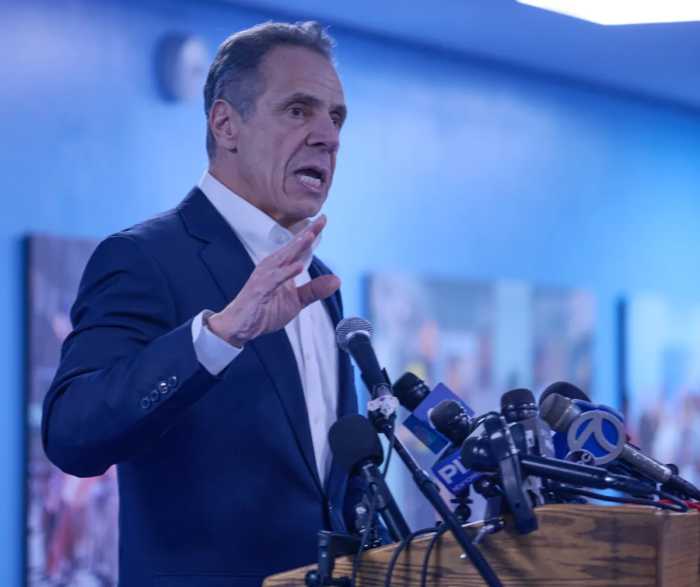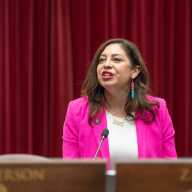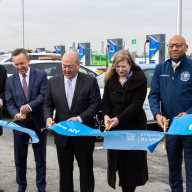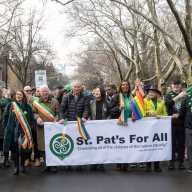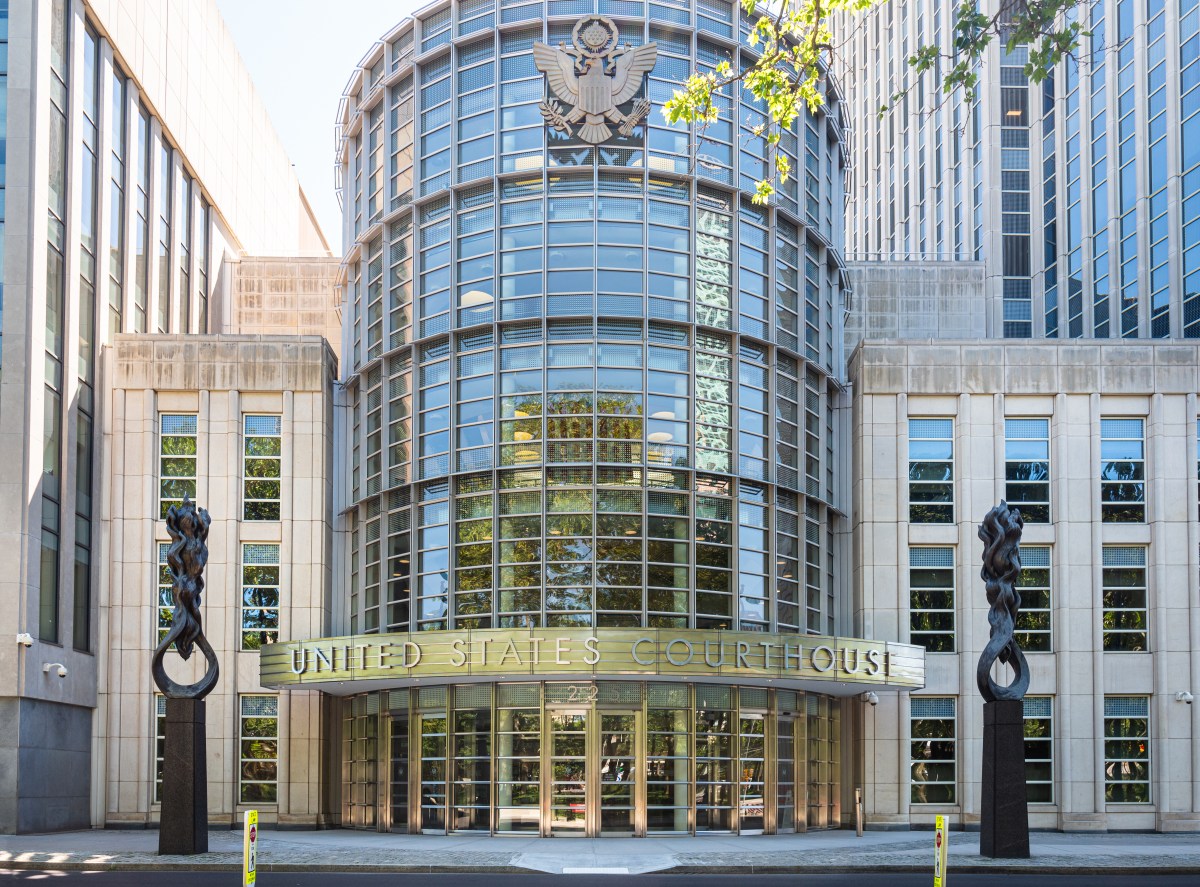Queens Borough President Donovan Richards and First Deputy Mayor Randy Mastro joined state legislators and members of the Queens Jewish community outside Borough Hall Tuesday afternoon to officially announce the Queens Holocaust Memorial, a new public site that will honor the 6 million Jews murdered by Nazi Germany during the Holocaust.
Richards and Mayor Eric Adams have allocated $3 million for the memorial, which will be located on the south-east lawn in front of Borough Hall at 120-55 Queens Blvd.
The memorial will also pay tribute to individuals and families who survived the Holocaust and will additionally play a role in educating the community about the Holocaust and the consequences of antisemitism, advocates said at an announcement event Tuesday.
Elected officials present at the Nov. 25 event, which featured a ceremonial groundbreaking, included Assembly Members David Weprin, Sam Berger, Nily Rozic, Alicia Hyman and Ed Braunstein. State Sens. Toby Ann Stavisky and Leroy Comrie also attended the event alongside Queens District Attorney Melinda Katz and representatives for Mayor-elect Zohran Mamdani.
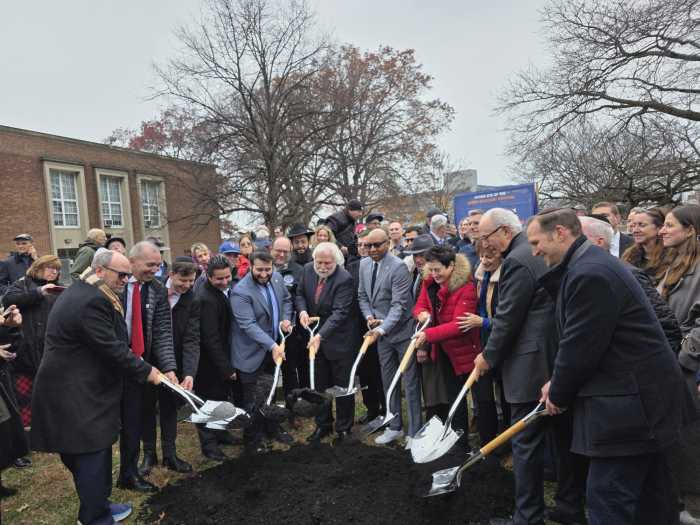
The site is the brainchild of Michael Nussbaum and other prominent members of the Queens Jewish community. Nussbaum, the co-publisher of the Queens Daily Eagle and president of the Queens Jewish Community Council, first approached Richards and the Mayor’s office with a vision for a Holocaust memorial three years ago.
In turn, Nussbaum credited Mastro for cutting through bureaucratic red tape and getting the project off the ground in June.
On Tuesday, Adams announced that he was committing $2 million in funding for the site, with Richards committing $1 million for the memorial, with other funding still to be sourced for the project.
Stavisky announced at Tuesday’s event that she would be allocating $1 million to the project, while Berger later announced that the Queens delegation in the Assembly would be advocating for $1.5 million in funding for the site. Richards then committed a further $1 million to the project.
The city will now coordinate with community stakeholders and civic leaders to develop the site as a memorial garden. The garden will feature public artwork, with an artist selection process led by the Department of Cultural Affairs’ “Percent for Art” program in consultation with artists, community members and Holocaust survivors.
Richards described the announcement as an “emotional day” for Jewish families across the borough, adding that the memorial is proof that Queens will “never forget” the horrors of the Holocaust.
“We will never forget what happened to 6 million Jewish families during World War II,” Richards said. “We will never forget, because we cannot forget the numbers tattooed in our neighbor’s arms, the scars they still bear from the beatings and slave labor.
“Today, we commit, as a borough, to never forgetting what they went through. We commit to never again allowing that kind of evil and hatred to take hold in our society.”
He vowed that the memorial will “send a message” that Queens will not allow antisemitism to “rule the day.”
Mastro, meanwhile, said the phrase “never again” are as relevant today as they have ever been and said it was “so important” to build a Holocaust memorial in Queens, where many Holocaust survivors made their home after coming to the U.S.
He said there will now be a collaboration between elected officials and community members to create a “beautifully landscaped memorial” that honors the victims of the Holocaust.
Mastro said antisemitism accounts for over 50% of the hate crimes in the city and said the memorial will play a role in combating that rising antisemitism.
“We have to remain ever vigilant,” Mastro said. “It’s not acceptable against any community, whether you are from the Jewish community, whether you are from the Christian community, whether you are from Islamic community.”
Vladimir Epshteyn, a Holocaust survivor who moved to the U.S. after being jailed in a Soviet prison during the Cold War, said the memorial will send a message that “nothing is forgotten.”
Epshteyn, who was born in Bessarabia shortly after the outbreak of the Second World War, escaped to modern-day Kazakhstan with his mother and was later jailed in the USSR for criticizing Soviet actions against Jews. He said he has seen a rise in antisemitism around the globe but said the memorial is an “important sign” that hate and antisemitism have “no place” in the United States.
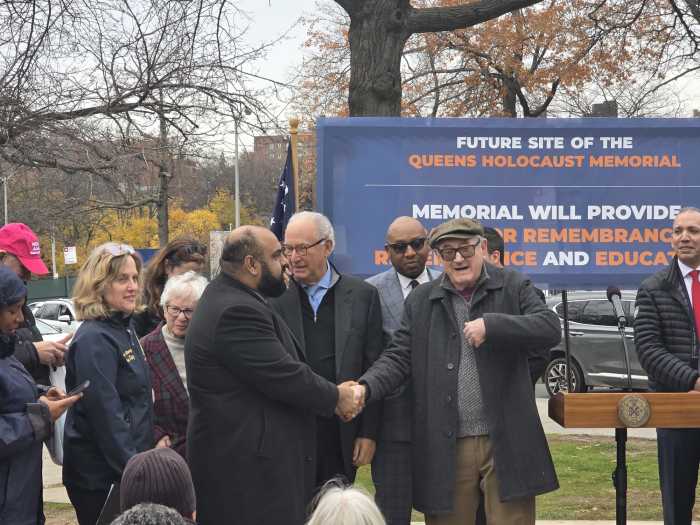
Rabbi Mayer Waxman, CEO of the Queens Jewish Community Council, said the memorial will be an important reminder of the dangers of antisemitism while also reinforcing the message of “never again.”
“Many people have forgotten,” Waxman said. “We say ‘never again’ and we also say ‘never forget,’ but people have forgotten…. But education is so important to help make sure people don’t forget and people understand.”
He also said the memorial will help combat a rise in Holocaust denial and praised elected officials for presenting a united front against antisemitism.

